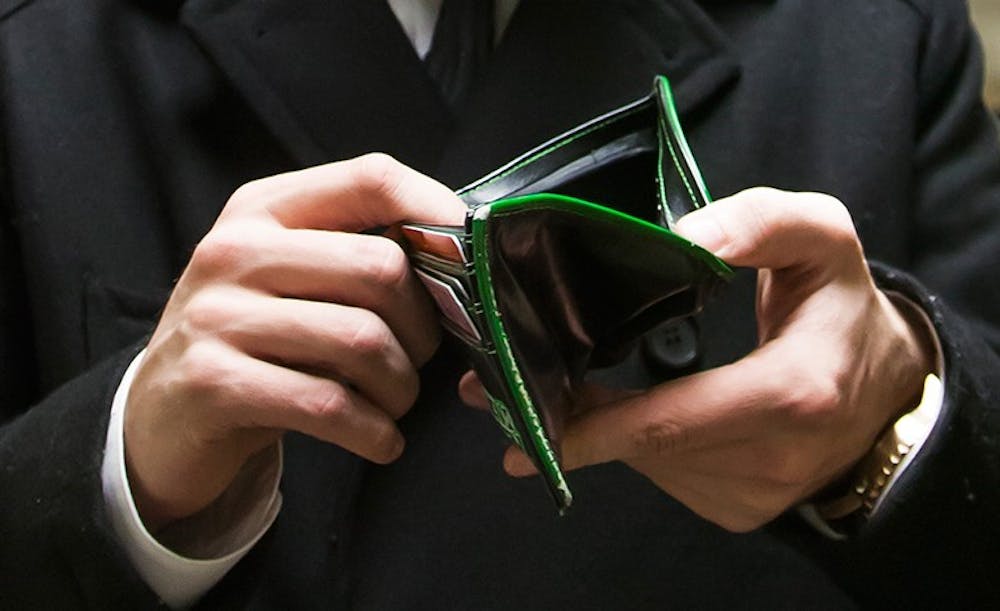By Erika Norton | Echo
College life can be measured in fees. Tuition fees, room and board fees and for Taylor students-like most university undergraduates-student government fees.
But while student account summaries make it clear that the Taylor Student Organization (TSO) requires about $36.50 each semester, those billing statements aren't so specific about where that money is spent.Director of Student Programs Steve Austin wants students to know how their money is being used and hopes students don't think they are just buying a lot of pizza.
"For a student to say, 'Hey, I pay $36.50 a semester, where does that go?'- that's perfectly understandable," Austin said.
The individual student fees of $36.50 are paid to TSO each semester, funding programs put on by the organization. These fees also pay the paid positions within TSO: the 13 presidents, including the student body president, and the media and marketing positions.
Taylor has 1,958 students enrolled this semester, and each pays the $36.50 fee. With a projected student enrollment of 1,853 students next semester, the total amount of student fees for this year is $139,102, according to the TSO 2013-14 budget.
Of the $36.50, $9.87 goes toward Student Development allocations right off the bat. This funds residence hall activities, the Office of Intercultural Programs and discipleship and subsidizes TWO.
After these external allocations are made, the remaining TSO budget amounts to $52,127 for the fall semester."What we're trying to do is take the money that students give us and put it back into students' hands, not just to spend, however, but through different missions of different areas," Austin said.
The money that goes to Student Senate is doled out by the senate to different student clubs, according to Austin. Money also goes to the Global Engagement office.
"The Global Engagement office exists to help educate students or develop an awareness of global issues and what being global citizens should be," Austin said. "They put on World Religions Week and those kinds of events."
Austin also explained that the Inter-Class Council (ICC) doesn't receive money from student fees because they use Airband earnings to fund the rest of their class programming for the year.
Recently-established school dances are also an expenditure for TSO.
"We're spending hours making the decorations for the dance as opposed to buying premade," Austin said. "So there's a lot of sweat equity that goes into keeping costs low and being good stewards of students' money."
As far as food goes, Austin said that one of the few times they do buy pizza is when they feed the stage crew for a lot of their big shows. These crews are students who are working sound, lighting and tech.
"We're not feasting away on the student body's money," Austin said. "We're really trying to be good stewards of it and put it to work for them."Student Body President Bri Leever clarified that when TSO goes to the Cheesecake Factory or Flat Top, it is to reward all of the volunteer cabinet members.
"If anything, should we not be showing our appreciation for these people in a grander way than we already are?" Leever said. "The least we can do is to take them out to a nice dinner."
Austin also cleared up a lot of misconceptions students may have about who gets paid within TSO.
"Almost $25,000 of student fees goes to help fund the leadership positions in our office, which pales in comparison to what PAs get paid," Austin said.
The Student Body President gets paid $1,100 per year. The four graphic designers and the News of the Day editor each get paid approximately $1,000 per year, according to Austin.
"It's one of those places where we've chosen to say if we're going to spend money somewhere, we're going to spend money on good advertising, good tickets, good design work and good programs," Austin said.
It's a challenge, Austin explained, to try to give students what they deserve without taking advantage of them.
"What's the middle ground between providing students with some pay, giving them a leadership experience that is beyond what we can pay and hoping that that equates to value for both them and us?" Austin said.
Leever said that it's not about the salary, but the leadership development in each position.
"So much of it is focused on developing as a leader," Leever said. "That is worth so much more to me than an extra $500."
*In the process of reporting for this story, it was discovered that students' online billing summaries have a $37 TSO fee listed. The Echo was unable to clarify prior to print why there was a discrepancy between the TSO budget and the fee students are charged.





